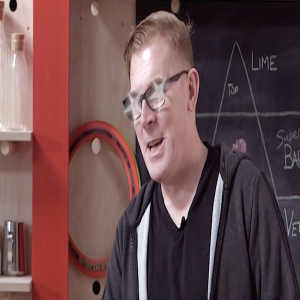
We've been buying from Fazenda Inglaterra for over ten years, and it's a farm that I am very proud to be working with and linked with, as well as the owner (and my very good friend) Stephen Hurst.
To tell the story of Inglaterra, I'll hand this over to Stephen of the Hurst variety to tell you how he came to own 'Inglaterra':
“Maybe it had always been an idea in the back of my mind – so a couple of years ago when some friends in Brazil mentioned that a small coffee farm was for sale, I had a look.
The farm's name (Fazenda Toca Da Onca) means 'hiding place of a small wildcat'. The locals now call the farm 'Inglaterra'. The previous owners had abandoned Toca Da Onca/Inglaterra. So we had to start again, almost from scratch. Some surviving coffee trees were pruned right back and the coffee that you are now drinking is that re-growth from the original old trees.
For the coffee people, the varietals are Icatu, Acaia and Catucai. In future I expect coffee cherry varietals to become as well known as wine grape varietals, and to a much wider audience. The farm is located near the lovely spa town of Poços De Caldas in the coffee-growing heartlands of Brazil’s Minas Gerais state. The farm's elevation is 950–1300 metres, and it has rich soil. It's on the edge of an ancient caldera/super volcano, whose outline can be seen on satellite images. 50% of the farm is virgin Mata Atlantica forest and as long as I own it, it will stay that way. I am replanting some areas with the help of my local friends Gabriel and Cristiano, without whose assistance this project would never have started."
Back to Stephen of the Leighton variety!
After Stephen bought the farm there was one varietal he decided to add to the plant stock that wasn't already there, and that varietal was Canario. It's one of those varietals you would never plant if you had to survive on coffee for your living – pests love it, its yield is really low and the slightest change in temperature will result in frost burn; a point proved a few years back when a cold snap experienced in Poços de Caldas left over 25% of this crop damaged.
So why grow it then? Well, it produces some of the most delicious coffee you can imagine. Also, it's something that Stephen had always wanted to ask producers to try but was too afraid to ask, so he just went ahead and did it himself!
Jump right into this when it's very hot and it's all dark chocolate, but as it begins to cool a little you'll get that shifting towards milk chocolate. It's joined by a hit of pecan nuts too and just a maple sweetness too. There's a hint of fruit too - think dried apricot pieces - for a very well balanced and more-ish coffee.
- Country: Brazil
- Region: Minas Gerais
- City: Poços de Caldas
- Farm: Fazenda Inglaterra
- Owner: Stephen Hurst
- Farm size: 10 hectares
- Coffee growing area: 5 hectares
- Altitude: 1,200 m.a.s.l.
- Varietal: Canario
- Processing system: Natural
Roast Information
Medium Dark - through first and give it a little time in the gap to develop, dropping it and looking for the very first pops of second as it cools.
More Episodes
Create your
podcast in
minutes
- Full-featured podcast site
- Unlimited storage and bandwidth
- Comprehensive podcast stats
- Distribute to Apple Podcasts, Spotify, and more
- Make money with your podcast
It is Free
- Privacy Policy
- Cookie Policy
- Terms of Use
- Consent Preferences
- Copyright © 2015-2024 Podbean.com







